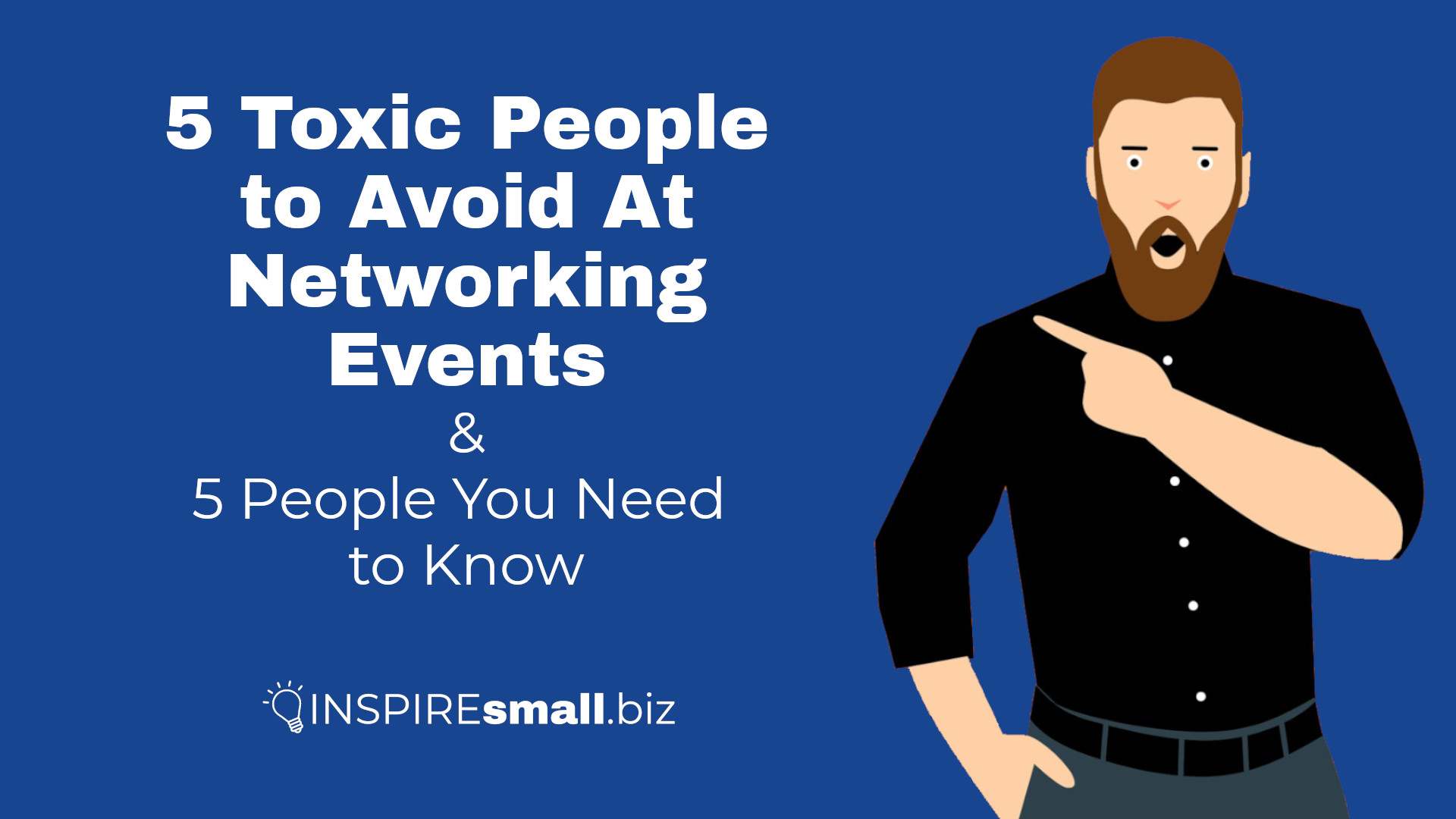Networking is already difficult, especially for new business owners and introverts. Many of the people you meet have a genuine interest in getting to know you, but there are certain types of individuals who might not contribute positively to your networking experience.
Why is networking important?
Networking is important for a variety of reasons, both in personal and professional contexts. Here are some key reasons why networking is important for everyone:
- Building Relationships: Networking allows you to build and nurture relationships with a diverse group of people. These connections can lead to personal and professional opportunities, including friendships, partnerships, and collaborations.
- Opportunities for Learning: Through networking, you can learn from others who have different experiences, expertise, and perspectives. This can expand your knowledge and help you see things from different angles.
- Career Advancement: Networking is crucial for career development. It can open doors to job opportunities, promotions, and mentorship. Many job positions are filled through referrals and personal connections.
- Sharing and Receiving Advice: Networking provides a platform to seek advice from experienced individuals, whether it’s about career decisions, business strategies, or personal matters. At the same time, you can offer your insights and knowledge to others.
- Access to Resources: Your network can provide access to resources, such as information, funding, or support, that can be beneficial in various aspects of life, including business, education, and personal growth.
- Increased Confidence: Networking helps you develop interpersonal skills and boosts your confidence in social situations. Over time, you become more comfortable engaging with a variety of people.
- Awareness and Exposure: Networking can increase your visibility in your industry or field. As you build a professional reputation, you become more likely to be considered for opportunities or collaborations.
- Problem Solving: Your network can be a valuable resource for solving problems. By reaching out to your connections, you can access a wealth of knowledge and experiences to help address challenges.
- Support System: Networking allows you to build a support system of people who can offer emotional support, encouragement, and guidance during difficult times in both your personal and professional life.
- Staying Informed: Networking keeps you informed about industry trends, news, and developments. This knowledge can help you stay competitive and adapt to changing circumstances.
- Entrepreneurial Opportunities: For entrepreneurs, networking is essential for finding investors, partners, and customers. It can also help in marketing and expanding your business.
- Diverse Perspectives: Networking exposes you to a diverse range of perspectives, which can broaden your horizons, challenge your assumptions, and promote inclusivity and diversity in your thinking.
In essence, networking is about connecting with people and leveraging those connections to support your personal and professional growth. It’s not just about what you can gain but also about what you can contribute to others. Building and maintaining a strong and diverse network can be a valuable asset throughout your life.
What is a toxic person?
A toxic person is someone who consistently displays harmful or detrimental behaviors, attitudes, and actions that have a negative impact on the well-being and emotional health of others. Toxic individuals can disrupt relationships, create stress, and undermine the overall harmony of personal and professional environments.
Characteristics of a toxic person include Manipulation, Negativity, Narcissism, Jealousy, Constant Drama, Gossip, Passive-Aggressiveness, Lack of Accountability, Controlling Behavior, and Emotional or Verbal Abuse.
Five types of people to be cautious about at networking events:
- The Self-Promoter: This person constantly talks about themselves, their accomplishments, and their business without showing any interest in listening to others. While self-promotion is natural at networking events, an excessive focus on themselves is off-putting and prevents meaningful connection.
- The Negative Naysayer: This individual always seems to find fault in every idea or opportunity. They can bring down the overall energy of the event and discourage others from sharing their thoughts and aspirations. Instead, surround yourself with positive and constructive discussions.
- The Card Collector: This person is only interested in collecting as many business cards as possible without making a genuine effort to establish a connection. They may not follow up after the event, making the interaction feel insincere and superficial.
- The Disinterested Distractor: This type of individual attends the event but seems disinterested or distracted the entire time. They might be checking their phone, looking around the room, or not actively engaging in conversations. Engaging with such people might not lead to productive connections.
- The Aggressive Salesperson: While networking events are a great opportunity to promote your business, pushing your products or services aggressively without taking the time to understand others’ needs is a huge turn-off. Building relationships always comes before making a sale.
While these types of people might be present at networking events, it’s still important to approach every interaction with an open mind and a willingness to connect. You never know when someone might surprise you with unexpected insights or opportunities. It’s also good practice to focus on being a good listener, asking thoughtful questions, and showing genuine interest in others’ experiences and goals.
Five types of people you should seek out at networking events
- Mentors: Finding a mentor at a networking event can provide you with guidance, advice, and support in your professional journey. They can offer valuable insights, share their experiences, and help you make informed decisions.
- Industry Influencers and Leaders: Connecting with industry influencers and leaders can be a tremendous asset. These individuals have valuable insights, experience, and connections. Meeting them can open doors to new opportunities, mentorship, and partnerships.
- Referral Partners: Look for individuals or businesses that share common goals or complementary services/products. Collaborators and potential partners can help you expand your reach, create new opportunities, and grow your business or projects.
- Fellow Professionals and Peers: Networking events are an opportunity to connect with peers in your industry or field. These connections can provide you with insights, support, and a sense of community. Sharing experiences and best practices with your peers can be mutually beneficial.
- Prospective Clients or Customers: Networking events could be an excellent place to meet potential clients or customers. Connecting with individuals who may be interested in your products or services allows you to showcase what you offer and build relationships that could lead to future business.
Remember that the key to successful networking is not just meeting people but also building genuine relationships. Be sure to approach these connections with a genuine interest in getting to know them, rather than solely focusing on what they can do for you. Building meaningful relationships can lead to long-term benefits as you build your business.



